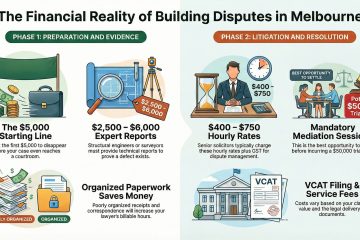Divorce costs can quickly escalate in contentious cases where property division and custody disputes require further proceedings to reach resolution. But mediation and other cost-efficient options can help keep costs under control and help keep proceedings moving quickly.
Filing fees vary by state and county, but you may qualify for a reduced filing fee by submitting an affidavit of financial hardship to apply for a fee waiver.
Filing Fees
Divorce can be an emotional time for any family. Depending on its circumstances, divorce can bring with it lifestyle shifts, financial shifts and considerations of how it might impact children’s lives. Divorce court fees often become an issue as soon as an action begins against another partner; the costs can quickly add up and strain any budget when couples opt for prolonged legal battles over divorce litigation.
Before beginning the divorce process, it’s crucial that you understand its costs. There are ways you can reduce these costs; one being to utilize alternative dispute resolution techniques like mediation which offers cost-cutting alternatives for resolving differences over terms of your separation agreement.
Your divorce costs will also depend on how many issues are at play in it, for instance if all major points like property division, child custody and alimony can be agreed upon without disputes that require court resolution.
In New York, contested divorce is generally more costly than uncontested. Aside from filing fees, such as time spent negotiating or hiring experts or investigators to resolve differences may also increase costs significantly.
Filing fees vary by state and county. In general, more populous counties tend to charge the highest filing fees, though they rarely differ by more than $100 between counties. There may also be other fees such as photocopies, notary fees, mailing and process server costs to consider as well. Many states and counties allow individuals in financial hardship to request fee waivers.
Most readers who hired attorneys for their divorces typically sought full-scope representation; this means the lawyers handled every aspect of the case from start to finish and paid an average of around $11,300 in attorney fees; this does not account for costs related to either party having their own attorney, nor mediation services costs that might arise during mediation proceedings.
Retainers
Divorce court fees can be very costly, particularly if there are disputes about child custody, property division and spousal support. Some expenses can be reduced by using alternative forms of dispute resolution such as mediation or collaborative law to resolve differences outside of courtroom litigation; depending on the complexity of your case these methods may also require professional fees from experts such as real estate appraisers and financial planners.
Divorce attorneys usually request a retainer fee before beginning work on your case, which represents their estimated time and costs of finalizing it. This retainer will be placed into an independent trust account that’s kept separate from their business account; when working on your case, your lawyer will bill against this retainer in 15- or 6-minute increments that have been rounded up to ensure accurate billing practices.
Depending on the complexity of your case, attorneys may spend more time on it compared to uncontested divorces; therefore, their hourly rates could increase accordingly. It’s essential that you discuss this matter with them and agree on a reasonable payment arrangement before hiring one of them as your legal representation.
As well as paying your lawyer’s fee, filing fees and court costs must also be covered. These costs vary by state and county – to find out exactly what they cost contact the county clerk’s office in your area.
Additionally, you may require paying for a child custody evaluation and/or professional mediator services. These evaluations are conducted by trained mental health professionals who interview both parents as well as interview the children directly while conducting observations of family interactions and gathering information from interviews conducted with both parties involved. Evaluation costs typically fall in the range of $1,000 to $2,500 and typically cost more when handled privately compared with court-appointed experts. Mediation sessions, which involve nonadversarial meetings with a professionally trained mediator, attorney-mediator or judge acting as an impartial third party and helping both parties come to an agreement, can also be costly but are extremely helpful for couples who find communicating their differences challenging.
Court Appearances
Contested divorces tend to cost more than uncontested ones because contested cases require resolving disagreements over custody and visitation, property division and support issues, etc. Also adding costs are the hours spent at each court appearance as well as time spent responding or preparing motions or filings from opposing counsel; any hiring of experts like forensic accountants for business valuation purposes could add even further expenses.
Mediation can be an ideal solution for couples hoping to reduce overall divorce expenses, providing couples the ability to reach settlements through sessions ranging from $100-250 each, making the process far more cost-effective than protracted court battles.
When facing a court hearing, it’s essential that you discuss exactly what will be expected of you with your attorney in advance. This can help prepare for the appearance, as well as plan work and other obligations around its date to avoid conflicts or unnecessary expenses. It may be beneficial to take off work entirely or at least notify your employer that there may be delays for court appearances on certain days; alternatively it might be wiser not to schedule appointments or commitments during that day in case things run overtime.
Documents
Divorce can be costly and often leaves both parties in drastically different financial states than during their marriage. Divorce expenses include filing fees, attorney’s fees, legal and court-ordered fees, property division expenses and alimony – however these amounts vary based on complexity and length of case – but there may be ways to lower them significantly.
Divorce costs can be drastically decreased if both you and your spouse can reach an agreement on key issues related to your case, while property disputes that don’t need trial also make a substantial dent in costs.
However, contested divorce can become costly when issues like child custody or property division become contentious. Such cases typically require both parties to hire lawyers; thus generating legal fees which quickly add up. Furthermore, experts such as accountants or home appraisers may need to be employed in order to assist with valuing assets.
Mediation can help lower the costs associated with your divorce by cutting litigation expenses by roughly half, with average mediation costs around $50 compared to that of a traditional trial-based divorce proceeding.
If the costs associated with divorce threaten your finances, it’s essential that you plan ahead and consider all available options. A Quicken Loans mortgage loan officer may suggest refinancing and lowering interest rates as one way of freeing up funds for divorce-related expenses.
Remember that most states provide the option of filing for a fee waiver. This typically means filing a motion asking the judge assigned to your case to waive filing fees due to financial hardship, with their decision often dependent on reviewing an affidavit explaining your situation and making an assessment based on that data. While it may not always be effective at cutting costs associated with divorce, this can still be used as an effective strategy.


